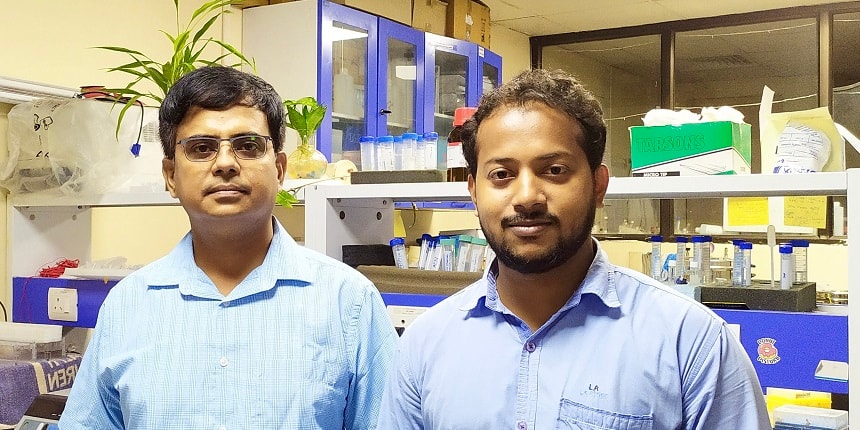IIT Guwahati develops strategy to deliver chemotherapeutic drugs specifically to cancer cells
Vagisha Kaushik | September 26, 2022 | 03:23 PM IST | 2 mins read
The molecules developed by the IITG researchers self-assemble as capsules to hold the drug, which then attaches only to cancer cells.

NEW DELHI: The Indian Institute of Technology (IIT) Guwahati researchers have developed a new strategy to deliver chemotherapeutic drugs specifically to the cancerous cells in a patient's body.
The research papers have been co-authored by Professor Debasis Manna, Department of Chemistry, IIT Guwahati, along with his research scholars Subhasis Dey, Anjali Patel, and Biswa Mohan Prusty, among others.
Also Read | ‘Missing’: IIT Bombay students take a dig at Gender Cell after 'inaction on women's safety'
Anticancer activities were carried out in collaboration with Professor Siddhartha Sankar Ghosh and Plaboni Sen from IIT Guwahati and Professor Arindam Bhattacharyya and Soumya Chatterjee from Calcutta University.
“The problem with existing chemotherapeutic drugs is that they kill healthy cells of the body in addition to cancerous cells, leading to numerous undesirable side effects. In fact, it is believed that cancer deaths are as much due to the side effects of chemotherapy as the disease itself. There is worldwide research to overcome the drawbacks of secondary toxicity of chemotherapeutic drugs. Some strategies that are being explored include target-specific delivery of the drugs and on-demand delivery of appropriate drug doses to cancerous cells , tissues,” an official statement from IIT Guwahati said.
IIT Guwahati study:
The molecule developed by the research team has four special features:
- The first feature is that the molecules assemble to form hollow spherical shells in water These shells that are ten-millionth of a meter in size can be used as a minuscule container for the drug molecule
- The second characteristic is that the molecule has a part (the acetazolamide ligand) that specifically binds to cancer cells and not normal cells
- The third feature of the molecule is that it has a photocleavable linker moiety that is responsive to infrared light and breaks the shell when exposed to IR
- Molecule also contain a dye moiety (cyanine-3) which is also useful for both fluorescence and scattering-based imaging to visually monitor the entire process
The molecules developed by the IITG researchers self-assemble as capsules to hold the drug, which then attaches only to cancer cells. When infrared light is shone on it, the shell breaks and releases the encapsulated drug into the cancerous cell. “The IITG scientists rightly believe that their approach would allow the development of drug carriers for chemotherapy with enhanced efficacy and negligible side effects,” the statement added.
Also Read | Agin was not interested in pursuing computer science and engineering: NIT Calicut director
“The researchers believe that the development of target-specific, light-responsive, self-imaging macrocyclic lipids such as those they’ve developed could help in image-guided chemotherapeutic applications. Following the development of the targeted IR (light)-trigger drug release system, the IIT Guwahati researchers are preparing to perform in vivo studies to take this understanding closer to drug development,” it further said.
Explaining his research Professor Manna said, “We have two needs in the development of chemotherapy drugs – the drug must be targeted at the cancer cells, the drug must be released by an external trigger whenever it is required.”
Follow us for the latest education news on colleges and universities, admission, courses, exams, research, education policies, study abroad and more..
To get in touch, write to us at news@careers360.com.